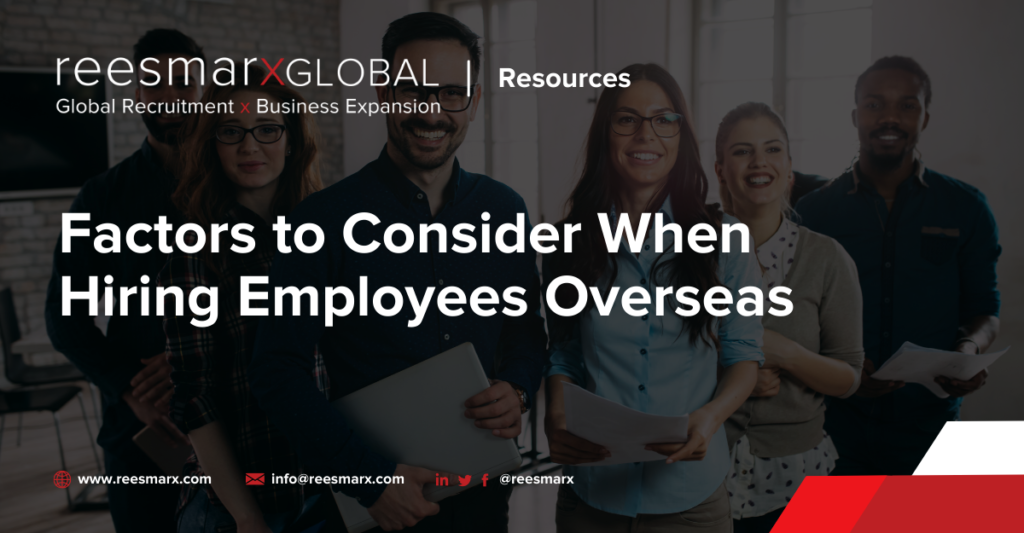Five Factors to Consider When Hiring Employees Overseas
Here are our top five important considerations that will help you anticipate problems and ensure you create the most efficient hiring process to identify the talent you need on a global scale.
We’re all used to the traditional hiring process. A candidate fills out an application, they come into the office for an interview, they get a job offer, and they become a part of the team. Now with the opportunity to expand your business into new markets, you might be wondering, “how can I know if I’m choosing the right candidate if I can’t meet them in a formal setting?” You may also have concerns with navigating regional compliance and the challenges that come with culture and language barriers. Luckily, as increasingly more businesses go global, employers have figured out ways to efficiently sort through and ultimately hire qualified talent—even if they’re on the other side of the globe.
Planning will be your biggest friend when hiring overseas. It’s a good idea to start this process early, before officially establishing your business’ presence in your new location. It’s likely that as you begin hiring in different locations that you’ll have to adjust your standard hiring procedures so stay ahead of the game before you begin hiring overseas. As you plan your hiring procedures, also focus on onboarding procedures as the process will most likely be remote. Ensure that your remote onboarding process is organized and comprehensive to allow new hires to get off on the right foot.
Cultural differences and employment regulations within the country will impact how you approach the hiring process. Making sure that you understand any cultural business formalities and employment laws will help you save your business a lot of time and money.
Hiring overseas is all about preparation and knowing how to conduct the process efficiently before you even begin. Download our eBook below now to get a more in-depth look at Factors to Consider When Hiring Employees Overseas.




